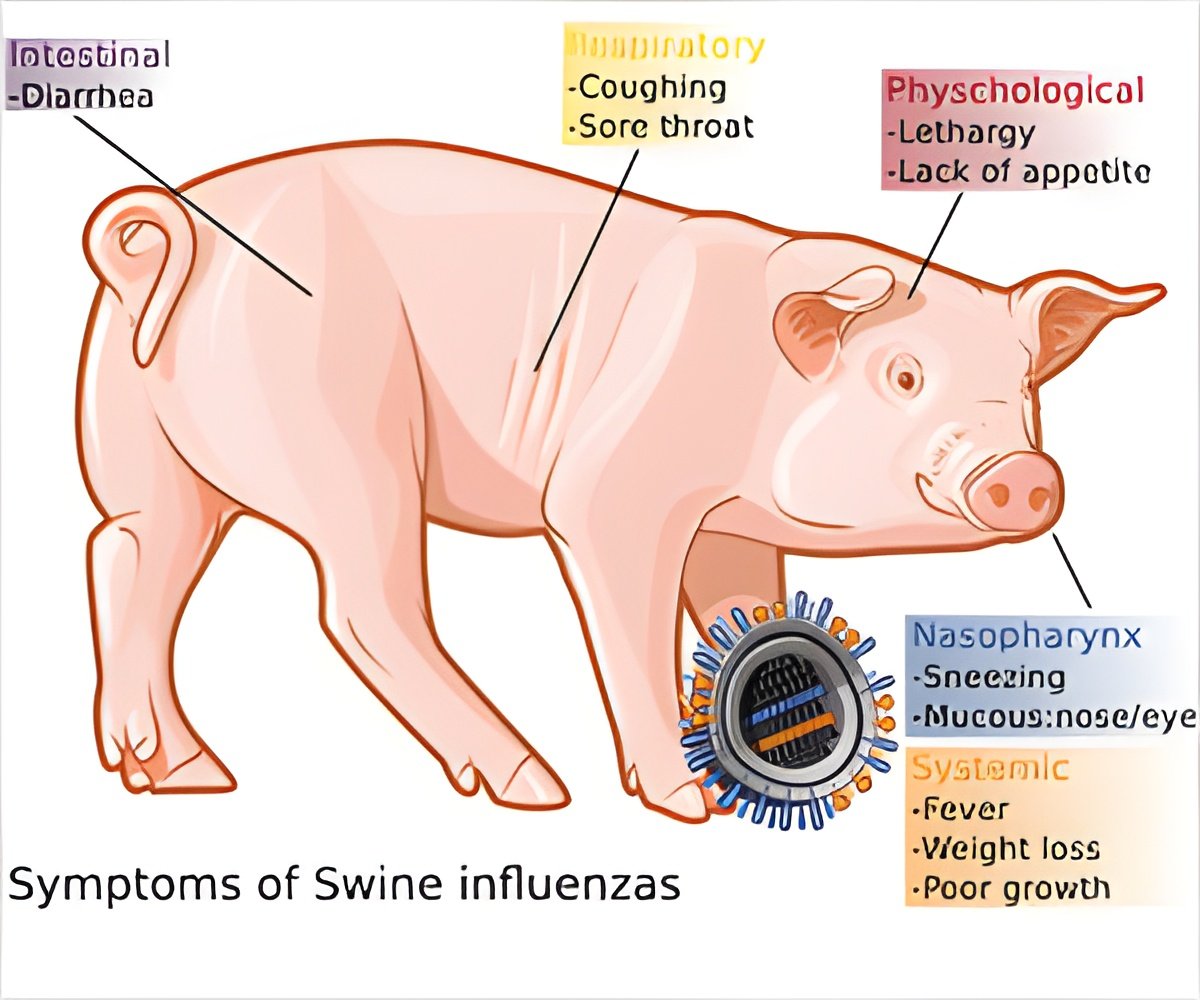In China, a new strain of the H1N1 swine influenza virus with pandemic potential has been identified. Pigs are the intermediate hosts for the generation of pandemic influenza virus.

‘The new strain of swine flu is a descendant of the H1N1 virus, with properties similar to the European avian-like (EA) H1N1 virus that had caused the 2009 pandemic in Mexico (pdm09).’





"Systematic surveillance of influenza viruses in pigs is a key measure for prewarning the emergence of the next pandemic influenza," said study authors from the China Agricultural University in Beijing. They identified a reassortant EA H1N1 virus possessing pdm/09 and triple-reassortant (TR)- derived internal genes, termed as G4 genotype, which has become predominant in swine populations since 2016.
Similar to pdm/09 virus, G4 viruses have all the essential hallmarks of a candidate pandemic virus.
Of concern is that swine workers show elevated seroprevalence for G4 virus.
Moreover, low antigenic cross-reactivity of human influenza vaccine strains with G4 reassortant EA H1N1 virus indicates that preexisting population immunity does not provide protection against G4 viruses.
Advertisement
The surveillance showed that 10.4 per cent of swine workers were positive for G4 virus, especially for participants from 18 years to 35 years old, who had 20.5 per cent seropositive rates, indicating that the predominant G4 virus has acquired increased human infectivity.
"Controlling the prevailing G4 viruses in pigs and close monitoring in human populations, especially the workers in the swine industry, should be urgently implemented," they added.
The development comes as the world is still struggling to contain the COVID-19 pandemic that originated in China's Wuhan city last December.
As of Tuesday, the virus has infected a total of 10,302,867 people globally, while the death toll stood at 505,518.
Source-IANS















